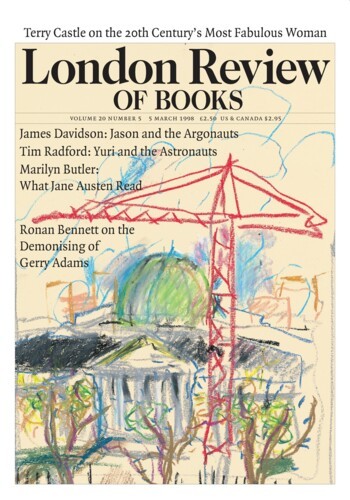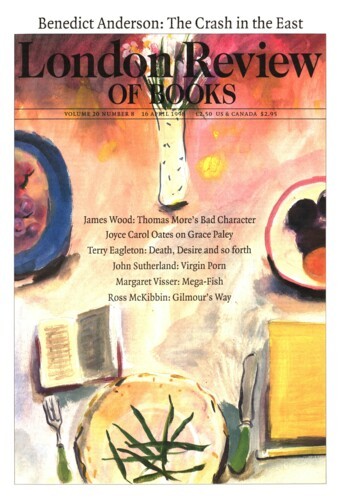Chaotic to the Core
James Davidson, 6 June 1996
In all of ancient literature there’s nothing quite like the Satyricon, a fragmentary autobiography of one Encolpius, who appears and disappears according to the hazards of textual survival. On our first sighting he’s making a speech about the decadence of modern education, then he’s somewhere else and a cloak has been stolen; more interference, another error, a randy priestess intent on revenge: ‘Both of us swore by all the religion in us that so dreadful a secret would die with us.’ We’ve lost it again, then light at the end of the tunnel: a game of catch, a long, late afternoon in a town near Naples, the dinner-party of Trimalchio, rich and technicoloured, darkness descends, a dreadful night, boyfriend goes off with best friend, a lecture in a gallery of paintings, boyfriend’s back, now they’re on a ship, so is a sworn enemy, a storm, a wreck, a city in Southern Italy, legacy-hunters, imposture, impotence, a priestess of Priapus, a cannibalistic will, an ending: ‘And when Numantia fell to Scipio, mothers were found cradling in their arms the half-eaten bodies of their own children.’





